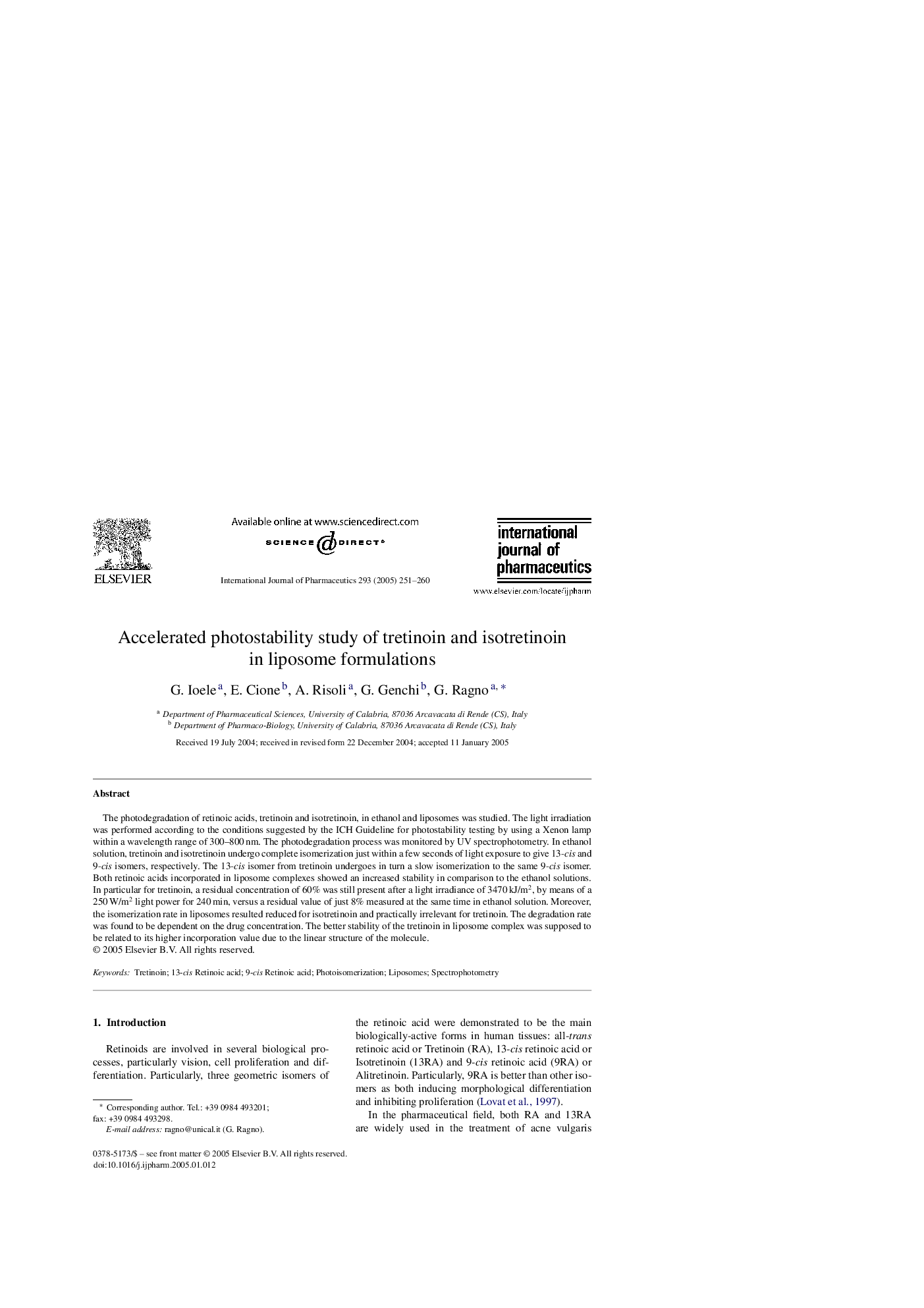| Article ID | Journal | Published Year | Pages | File Type |
|---|---|---|---|---|
| 9918889 | International Journal of Pharmaceutics | 2005 | 10 Pages |
Abstract
The photodegradation of retinoic acids, tretinoin and isotretinoin, in ethanol and liposomes was studied. The light irradiation was performed according to the conditions suggested by the ICH Guideline for photostability testing by using a Xenon lamp within a wavelength range of 300-800Â nm. The photodegradation process was monitored by UV spectrophotometry. In ethanol solution, tretinoin and isotretinoin undergo complete isomerization just within a few seconds of light exposure to give 13-cis and 9-cis isomers, respectively. The 13-cis isomer from tretinoin undergoes in turn a slow isomerization to the same 9-cis isomer. Both retinoic acids incorporated in liposome complexes showed an increased stability in comparison to the ethanol solutions. In particular for tretinoin, a residual concentration of 60% was still present after a light irradiance of 3470Â kJ/m2, by means of a 250Â W/m2 light power for 240Â min, versus a residual value of just 8% measured at the same time in ethanol solution. Moreover, the isomerization rate in liposomes resulted reduced for isotretinoin and practically irrelevant for tretinoin. The degradation rate was found to be dependent on the drug concentration. The better stability of the tretinoin in liposome complex was supposed to be related to its higher incorporation value due to the linear structure of the molecule.
Keywords
Related Topics
Health Sciences
Pharmacology, Toxicology and Pharmaceutical Science
Pharmaceutical Science
Authors
G. Ioele, E. Cione, A. Risoli, G. Genchi, G. Ragno,
